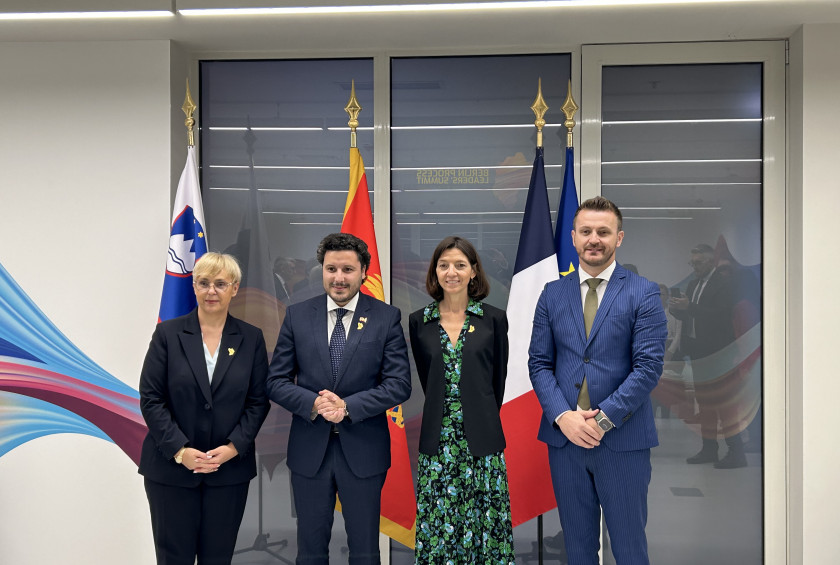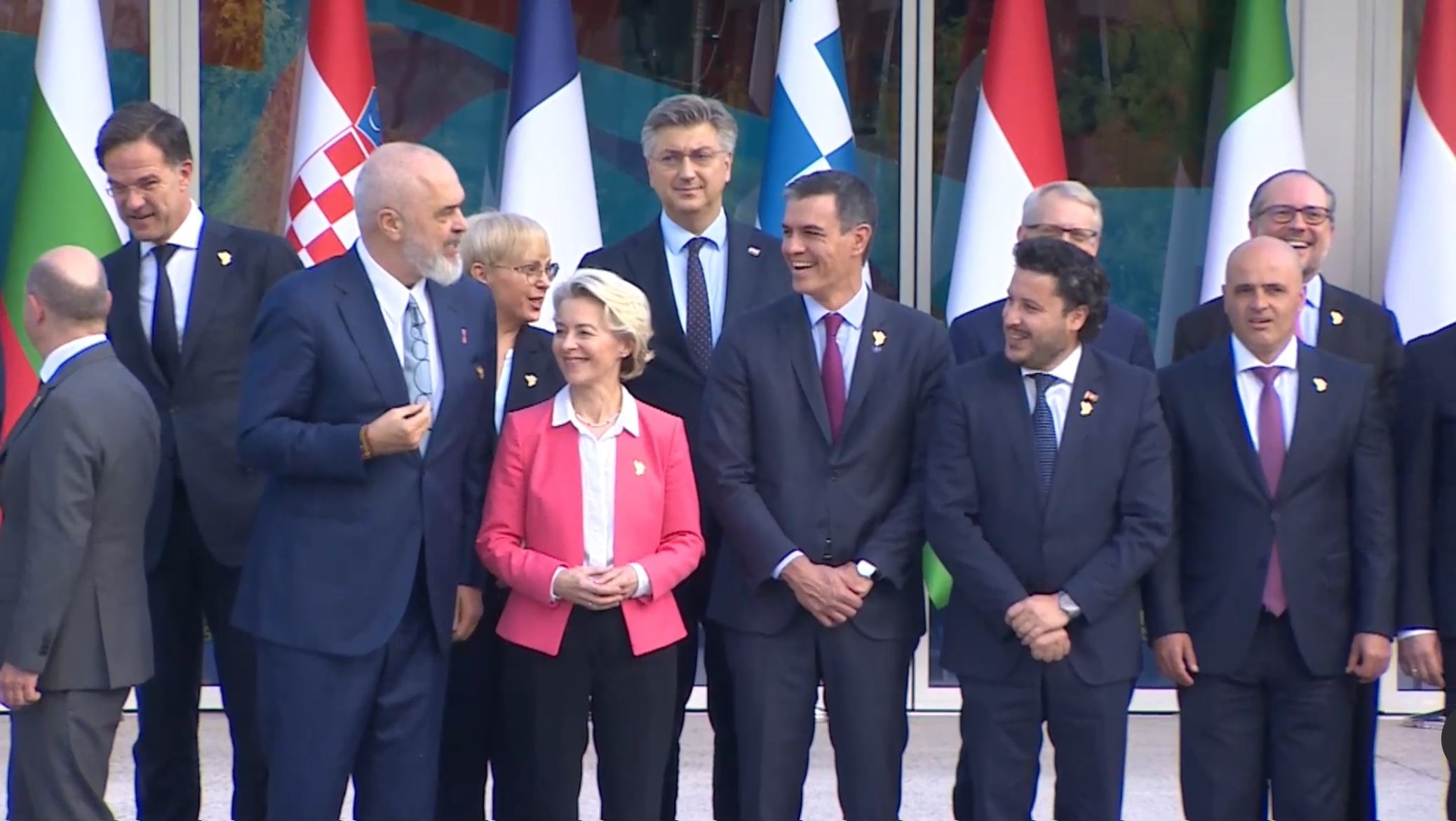
Predsednica republike Nataša Pirc Musar se je udeležila Vrha Berlinskega procesa v Tirani.
EU enlargement must not be a political option, but a geostrategic necessity
The President of the Republic of Slovenia, Nataša Pirc Musar, attended the Berlin Process summit in Tirana, where she met with leaders from the Western Balkans and other EU Member States. The aim of the process is to promote the enlargement of the European Union to the Western Balkans and to bring the region closer to European and global corridors, while urging the region’s countries to maintain their positive momentum for reform and continue resolving outstanding issues.
Tirana, Republika Albanija, 16 Oct 2023
News
This time, EU and Western Balkan leaders held three working meetings to discuss the economic cooperation between the EU and the region, challenges in bilateral relations between the Western Balkan countries, and the importance of the digital and green transitions in the region.
At the summit, the President expressed Slovenia's firm commitment to support the Western Balkans' fastest possible integration into the EU. "EU enlargement must not be a political option, but a geostrategic necessity. It is a key element for the region’s stability.
She also placed particular emphasis on the issue of highly educated young people leaving the region, noting that it was a major geopolitical challenge. "We must tackle such challenges together, there are no easy solutions at the level of individual countries. It is therefore good that regular dialogue is maintained between the EU and the Western Balkans, both in the context of the Brdo-Brijuni process and the Berlin Process, and at the level of bilateral meetings."
At the Berlin Process summit, President Pirc Musar signed an agreement with the French Secretary of State for European Affairs, Laurence Boone, and the Prime Minister of Montenegro, Dritan Abazović, on the establishment of the Western Balkans Cyber Capacity Centre (WB3C), which will play a key role in training experts in cybersecurity and the fight against cybercrime, thus contributing to increasing security in the Western Balkans.
"The rapid digital transformation of the economy and society is accompanied by an increasing risk of cybercrime and cyber attacks, as demonstrated by the recent wave of attacks on state information systems. Strengthening the Western Balkans’ cyber resilience must follow the strengthening of European and global cyber resilience," said the President of the Republic at the signing of the agreement, underlining the importance of combating disinformation by using artificial intelligence. She stressed that such a project should be financed under the auspices of the UN or other international organisations, as it would not attract sufficient commercial interest.
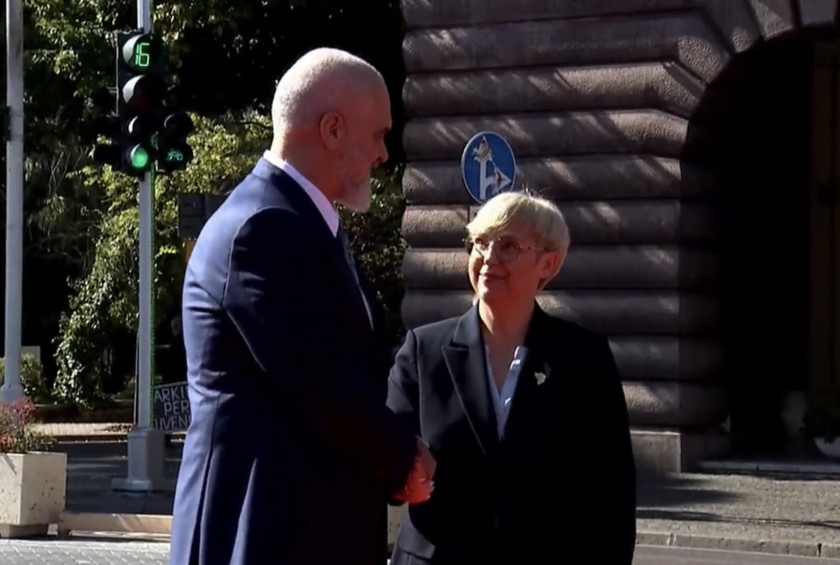
Prihod na Vrh Berlinskega procesa in pozdrav z gostiteljem, albanskim premierjem Edijem Ramo.
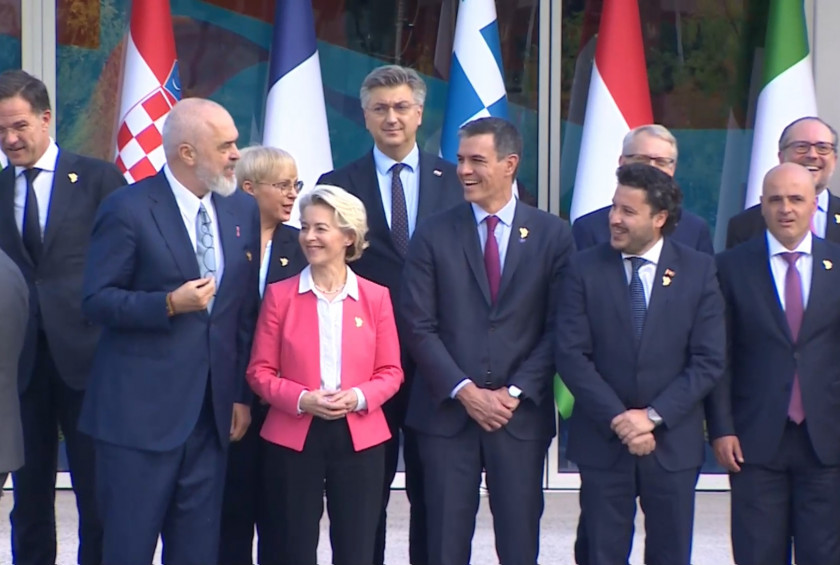
Vrha Berlinskega procesa so se udeležili voditelji držav EU in Zahodnega Balkana.
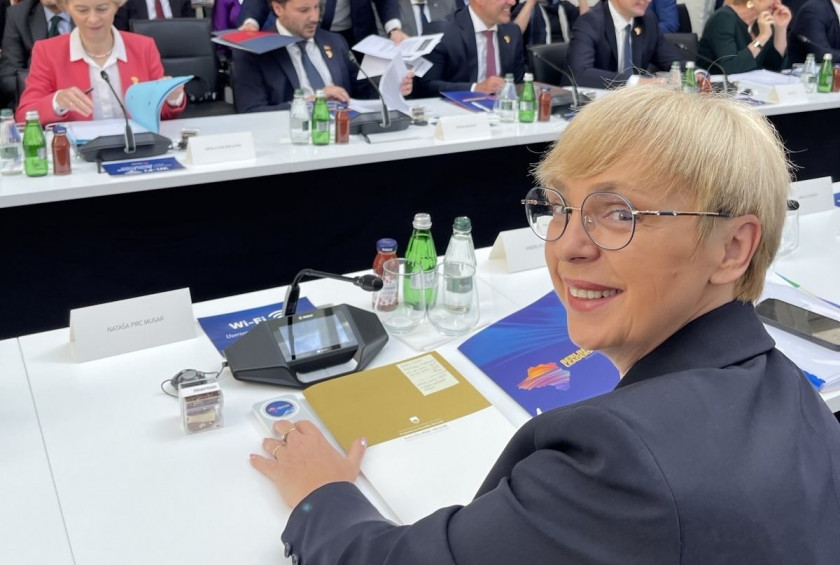
Udeležba predsednice republike na zasedanju Vrha Berlinskega procesa.
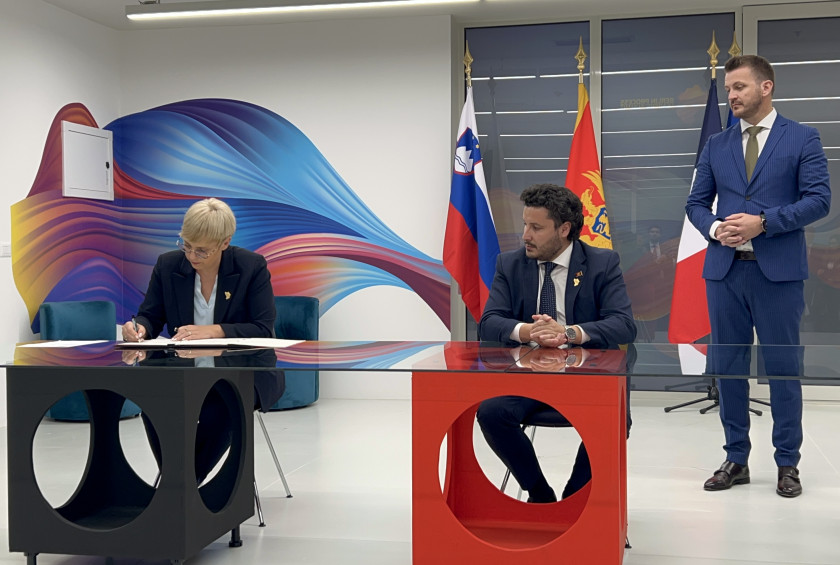
Podpis sporazuma o ustanovitvi Centra za kibernetsko varnost.
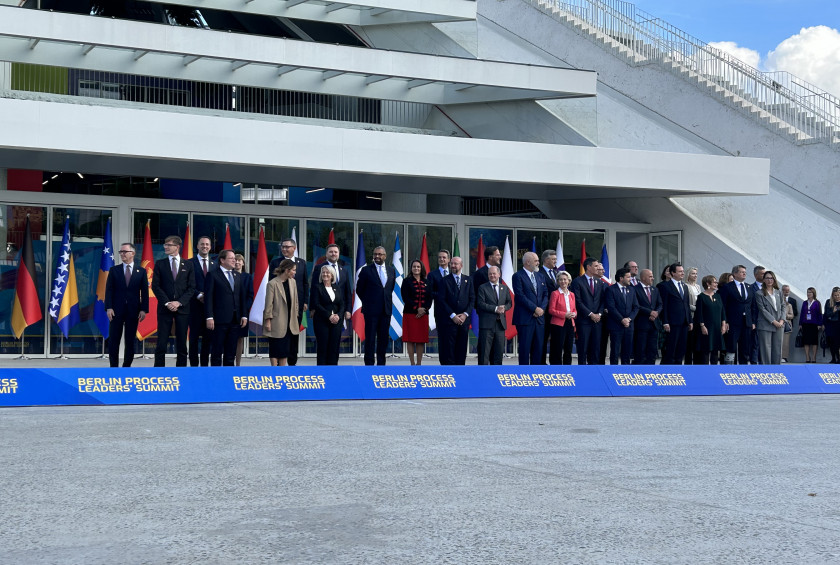
Skupinska fotografija udeležencev Vrha Berlinskega procesa.

